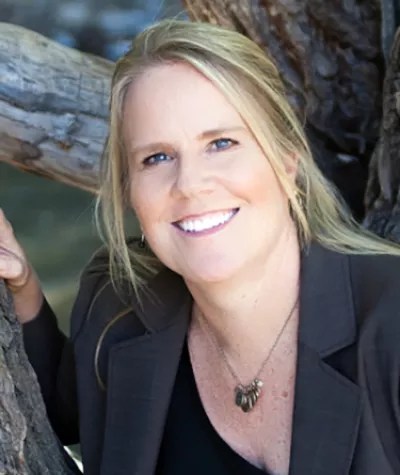
Denver7 via YouTube file photo

Audio By Carbonatix
This is the last in a series about Colorado growth. Click to read part one, “Almost Everything You Think You Know About Colorado Growth Is Wrong,” and part two, “Surprising Reasons Why Colorado’s Growth Is Slowing.”
State demographer Elizabeth Garner is all about busting myths about Colorado growth. She stresses that while the state’s population grew by 14 percent from 2010 to 2020, the pace was less than half of the increase in the 1990s. She also points out that declining birth rates, partly fueled by fewer teen pregnancies and the decision of many women in their twenties and thirties to put off having kids during the COVID-19 pandemic, is likely to impact the labor force, the education and health-care systems, the housing market and more during the years to come, particularly in the many parts of the state where the population is either stagnating or shrinking.
That hasn’t affected Denver. The overwhelming majority of growth in Colorado over the past ten years or so has occurred along the urban corridor, including the Mile High City. But Garner suggests that Denver proper will face a host of economic challenges before the decade is out as its youngest residents age, and the situation could become even more problematic if industries clobbered by COVID don’t bounce back as hoped.
“Denver’s an interesting case,” Garner says. “It’s the center of the metro area. Most people from other places know of Denver, even if they don’t necessarily know about Adams County or Arapahoe County. In terms of attracting people from out of state or out of the country, Denver is the primary location, and it’s always attracted young adults. That’s been Denver’s economic engine.”
The overall slowdown in births in Colorado, from which Denver hasn’t been exempt, represents a complicating factor. Garner notes that the peak year for births in the state this century was 2007, “so right now, our peak person is fourteen or fifteen years old. As that peak person ages for the next seven years or so, I think Denver’s going to be fine. But after that is where Denver probably needs to be planning for what’s next – when this ability to attract young adults starts slowing down. We forecast that Denver will keep growing through 2030, but just not as quickly as before.”
Garner believes that Denver planners should be asking this: “How do we retain middle-age and older adults, and not just depend on young adults?”

Elizabeth Garner is the state demographer for Colorado.
Historically, Denver has seldom bucked broader economic trends. “When everything is great, it does well. When everything is bad, it does poorly,” Garner notes.
As an example, she cites the dip in the leisure and hospitality fields as a result of COVID. “Denver was the second-most-impacted county in the state in terms of absolute loss to the casino counties, whose economy is so based on casino jobs. And because of the transitions that have taken place over the past couple of years, I don’t know if all those leisure and hospitality jobs will ever come back. The conference industry is very, very significant to Denver, so I’m curious about what’s going to happen with them.”
Another unexpected Denver development involves diversity. “When we look at the changes from 2010 to 2020, about a third of Colorado’s total growth was in our white, non-Hispanic population, and about two-thirds of the growth was in our people of color,” Garner says. “But when we look at that distribution across the state, we saw the Front Range grow more diverse, and that was definitely true in our largest, fastest-growing counties. Both El Paso and Weld counties increased significantly in their people of color. But the only Front Range county where that really didn’t happen, interestingly, was Denver. It didn’t become a lot less diverse; it just didn’t make a big change.”
In some ways, Garner says, counties whose populations are already getting smaller “are potentially more prepared and resilient than we might think, because it’s actually been going on for a bit. What I think is going to be hard for Denver and the Front Range is that they’ve always been able to depend on attracting the best and the brightest – being able to migrate highly talented people. But now, Colorado, and Denver, are going to have to compete, because there are fewer people, and it’s really expensive to live here. That makes it harder for us. Certainly, there are a lot of benefits to slowing down, but there are a lot of challenges, too.”